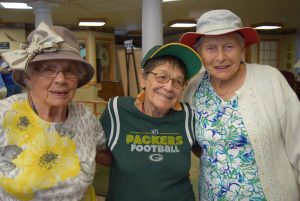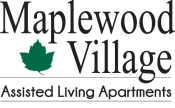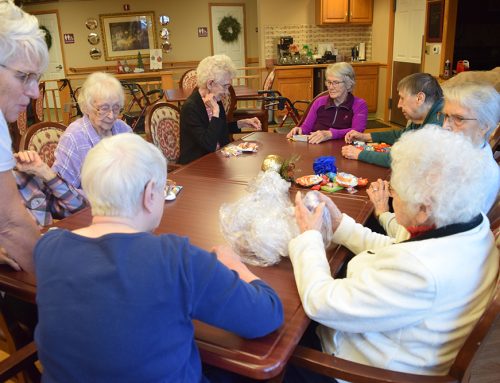Indications It May Be Time to Consider Assisted Living
We all want those elderly individuals we love to be able to reap the benefits of a life well lived, including an overwhelming desire to keep the person as safe and healthy as possible. An Assisted Living facility helps alleviate safety and health concerns. One of the most difficult decisions a caregiver faces is when consideration should be given to moving an aging adult from his/her home to an Assisted Living facility. There are clues, some obvious, some not so obvious, to assist in making this decision.
Situations that make the decision to seek additional assistance for your senior loved one more obvious include: (1) a persistent health condition that seems to be worsening; (2) an extended recovery from an illness or injury; and (3) an increased difficulty managing the daily living skills needed to live independently. Another obvious sign is increased misfortune or increased risk of misfortune. For example, is your loved one experiencing falls, or near falls as one example. Other physical clues include your loved one seeming increasingly more frail; visible weight loss or gain; noticeable changes in appearance and personal hygiene.
Social connections are important to everyone but it seems that as we age, our social circles get smaller leading to potential safety and health concerns. If your elderly loved one lives alone, at a minimum, there should be someone that regularly checks on the person’s wellbeing. A personal alarm system to summon assistance if needed is also a good investment. Things that should raise a red flag in terms of socialization include: (1) a loved one decreasing or ceasing to participate in activities and interests they’ve always enjoyed; (2) limited association by your loved one with friends and family; and (3) a loved one that no longer leaves the house.

Another factor which raise an indication that your loved one is having trouble living on his/her own can be found in the way finances are being handled. Signs that a person is having difficulty managing finances include: (1) finding piles of personal or business mail, opened or unopened, in various sites around the house; (2) business correspondence from creditors, insurers or financial institutions; (3) correspondence from charitable organizations expressing gratitude for donations; and (4) magazine or newspaper subscriptions which appear to be unread.
Conducting a walkthrough of the home can also provide clues as to the degree to which your elderly loved one is managing his/her independence. If you notice clutter, cobwebs, bathroom mold or thick dust, this is a reliable indication your loved one is struggling to keep up with housekeeping needs. Likewise, a review of the kitchen might show expired or stale foods, multiple purchases of the same item, a heavy reliance on frozen foods, a lack of fresh food, appliances that don’t work or need repair and even signs of accidental fire in cooking areas.
The decision to consider that it may be time to consider assisted living for your loved one is difficult, even more so, if your loved one is opposed to such a move. If some of the above signs are evident in your loved one’s home, talk to other members of the family about concerns you’ve noted, comparing their insights and paying close attention to concerns they have. It might also be a good time to seek insight from your loved one’s doctor about potential health and safety issues.
Broaching the subject of assisted living with your loved one will be difficult; however, by initiating such a conversation, you may find that he/she has the same concerns about their physical and emotional well-being and safety that you do.

